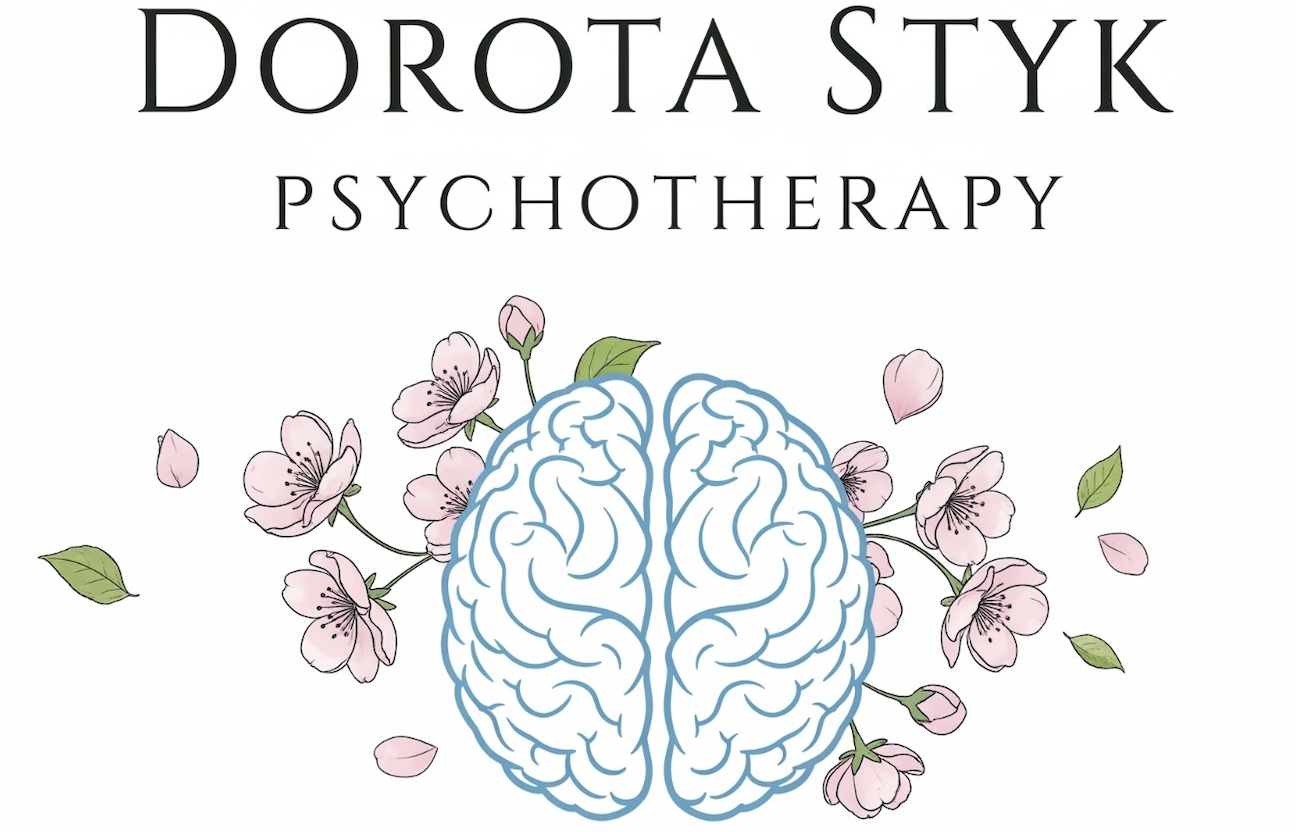
The Efficacy and Applications of Cognitive Behavioural Therapy
Cognitive Behavioral Therapy (CBT): Understanding the Gold Standard in Psychological Treatment
Cognitive Behavioral Therapy represents one of the most significant advances in psychological treatment over the past 50 years (Beck & Dozois, 2011). This therapeutic approach has revolutionized how we understand and treat mental health conditions, demonstrating remarkable efficacy across various psychological disorders (Hofmann et al., 2012).
Understanding CBT
CBT is a client-centered, problem-focused approach based on the fundamental principle that our thoughts significantly influence our emotional and behavioral responses (Butler et al., 2006). Unlike traditional Freudian approaches that emphasized unconscious processes and past experiences, CBT focuses on the present, examining how current thought patterns affect our daily lives (David et al., 2018).
Evidence-Based Effectiveness
The therapeutic applications of CBT span a remarkable range of conditions, with strong empirical support for its efficacy (Hofmann et al., 2012):
Primary Mental Health Conditions
- Depression and dysthymia (DeRubeis et al., 2015)
- Anxiety disorders (Carpenter et al., 2018)
- Bipolar disorder (Chiang et al., 2017)
- Schizophrenia and psychotic disorders (Morrison et al., 2014)
- Eating disorders (Murphy et al., 2010)
- Personality disorders (Davidson et al., 2006)
Behavioral and Physical Issues
- Substance use disorders (McHugh et al., 2010)
- Chronic pain and fatigue (Williams et al., 2012)
- Insomnia (Trauer et al., 2015)
- Anger and aggression (Hofmann et al., 2012)
- Criminal behaviors (Wilson et al., 2005)
- General stress management (Hofmann & Smits, 2008)
Treatment Advantages
Long-Term Benefits
CBT has demonstrated superior long-term outcomes compared to medication-only approaches. Research has shown that patients treated with CBT have a 50% lower chance of relapse compared to those treated solely with antidepressant medication (Hollon et al., 2005).
Cost-Effectiveness
While initial costs may be higher, CBT proves more economical in the long run compared to continuous medication (Mukuria et al., 2013). Group formats, such as mindfulness-based CBT, offer particularly cost-effective solutions (Kuyken et al., 2015).
Clinical Applications
Depression Management
- Mild to moderate cases: Individual self-help and computerized CBT (Andrews et al., 2018)
- Moderate to severe cases: Combine
References
Andrews, G., Basu, A., Cuijpers, P., Craske, M. G., McEvoy, P., English, C. L., & Newby, J. M. (2018). Computer therapy for anxiety and depression disorders is effective, acceptable and practical health care: An updated meta-analysis. Journal of Anxiety Disorders, 55, 70-78. https://doi.org/10.1016/j.janxdis.2018.01.001
Beck, A. T., & Dozois, D. J. A. (2011). Cognitive therapy: Current status and future directions. Annual Review of Medicine, 62, 397-409. https://doi.org/10.1146/annurev-med-052209-100032
Butler, A. C., Chapman, J. E., Forman, E. M., & Beck, A. T. (2006). The empirical status of cognitive-behavioral therapy: A review of meta-analyses. Clinical Psychology Review, 26(1), 17-31. https://doi.org/10.1016/j.cpr.2005.07.003
Carpenter, J. K., Andrews, L. A., Witcraft, S. M., Powers, M. B., Smits, J. A., & Hofmann, S. G. (2018). Cognitive behavioral therapy for anxiety and related disorders: A meta‐analysis of randomized placebo‐controlled trials. Depression and Anxiety, 35(6), 502-514. https://doi.org/10.1002/da.22728
Chiang, K. J., Tsai, J. C., Liu, D., Lin, C. H., Chiu, H. L., & Chou, K. R. (2017). Efficacy of cognitive-behavioral therapy in patients with bipolar disorder: A meta-analysis of randomized controlled trials. PLoS One, 12(5), Article e0176849. https://doi.org/10.1371/journal.pone.0176849
Craske, M. G., Treanor, M., Conway, C. C., Zbozinek, T., & Vervliet, B. (2014). Maximizing exposure therapy: An inhibitory learning approach. Behaviour Research and Therapy, 58, 10-23. https://doi.org/10.1016/j.brat.2014.04.006
Cuijpers, P., Berking, M., Andersson, G., Quigley, L., Kleiboer, A., & Dobson, K. S. (2013). A meta-analysis of cognitive-behavioural therapy for adult depression. Psychological Medicine, 43(12), 2499-2510. https://doi.org/10.1017/S0033291713000871
Cuijpers, P., Sijbrandij, M., Koole, S., Huibers, M., Berking, M., & Andersson, G. (2014). Psychological treatment of generalized anxiety disorder: A meta-analysis. Clinical Psychology Review, 34(2), 130-140. https://doi.org/10.1016/j.cpr.2014.01.002
David, D., Cristea, I., & Hofmann, S. G. (2018). Why cognitive behavioral therapy is the current gold standard of psychotherapy. Frontiers in Psychiatry, 9, Article 4. https://doi.org/10.3389/fpsyt.2018.00004
Davidson, K. M., Tyrer, P., Norrie, J., Palmer, S. J., & Tyrer, H. (2006). Cognitive therapy v. usual treatment for borderline personality disorder: Prospective 6-year follow-up. British Journal of Psychiatry, 188(2), 135-140. https://doi.org/10.1192/bjp.188.2.135
DeRubeis, R. J., Hollon, S. D., Amsterdam, J. D., Shelton, R. C., Young, P. R., Salomon, R. M., O’Reardon, J. P., Lovett, M. L., Gladis, M. M., Brown, L. L., & Gallop, R. (2015). Cognitive therapy vs medications in the treatment of moderate to severe depression. Archives of General Psychiatry, 62(4), 409-416. https://doi.org/10.1001/archpsyc.62.4.409
Ehlers, A., Grey, N., Wild, J., Stott, R., Liness, S., Deale, A., Handley, R., Albert, I., Cullen, D., Hackmann, A., Manley, J., McManus, F., Brady, F., Salkovskis, P., & Clark, D. M. (2014). Implementation of cognitive therapy for PTSD in routine clinical care: Effectiveness and moderators of outcome in a consecutive sample. Behaviour Research and Therapy, 54, 60-67. https://doi.org/10.1016/j.brat.2014.01.006
Hofmann, S. G., & Smits, J. A. (2008). Cognitive-behavioral therapy for adult anxiety disorders: A meta-analysis of randomized placebo-controlled trials. Journal of Clinical Psychiatry, 69(4), 621-632. https://doi.org/10.4088/jcp.v69n0415
Hofmann, S. G., Asnaani, A., Vonk, I. J., Sawyer, A. T., & Fang, A. (2012). The efficacy of cognitive behavioral therapy: A review of meta-analyses. Cognitive Therapy and Research, 36(5), 427-440. https://doi.org/10.1007/s10608-012-9476-1
Hollon, S. D., DeRubeis, R. J., Shelton, R. C., Amsterdam, J. D., Salomon, R. M., O’Reardon, J. P., Lovett, M. L., Young, P. R., Haman, K. L., Freeman, B. B., & Gallop, R. (2005). Prevention of relapse following cognitive therapy vs medications in moderate to severe depression. Archives of General Psychiatry, 62(4), 417-422. https://doi.org/10.1001/archpsyc.62.4.417
Huey Jr, S. J., & Polo, A. J. (2008). Evidence-based psychosocial treatments for ethnic minority youth. Journal of Clinical Child & Adolescent Psychology, 37(1), 262-301. https://doi.org/10.1080/15374410701820174
Kuyken, W., Hayes, R., Barrett, B., Byng, R., Dalgleish, T., Kessler, D., Lewis, G., Watkins, E., Brejcha, C., Cardy, J., Causley, A., Cowderoy, S., Evans, A., Gradinger, F., Kaur, S., Lanham, P., Morant, N., Richards, J., Shah, P., … Byford, S. (2015). Effectiveness and cost-effectiveness of mindfulness-based cognitive therapy compared with maintenance antidepressant treatment in the prevention of depressive relapse or recurrence (PREVENT): A randomised controlled trial. The Lancet, 386(9988), 63-73. https://doi.org/10.1016/S0140-6736(14)62222-4
Mayo-Wilson, E., Dias, S., Mavranezouli, I., Kew, K., Clark, D. M., Ades, A. E., & Pilling, S. (2014). Psychological and pharmacological interventions for social anxiety disorder in adults: A systematic review and network meta-analysis. The Lancet Psychiatry, 1(5), 368-376. https://doi.org/10.1016/S2215-0366(14)70329-3
Morrison, A. P., Turkington, D., Pyle, M., Spencer, H., Brabban, A., Dunn, G., Christodoulides, T., Dudley, R., Chapman, N., Callcott, P., Grace, T., Lumley, V., Drage, L., Tully, S., Irving, K., Cummings, A., Byrne, R., Davies, L. M., & Hutton, P. (2014). Cognitive therapy for people with schizophrenia spectrum disorders not taking antipsychotic drugs: A single-blind randomised controlled trial. The Lancet, 383(9926), 1395-1403. https://doi.org/10.1016/S0140-6736(13)62246-1
Mukuria, C., Brazier, J., Barkham, M., Connell, J., Hardy, G., Hutten, R., Saxon, D., Dent-Brown, K., & Parry, G. (2013). Cost-effectiveness of an improving access to psychological therapies service. British Journal of Psychiatry, 202(3), 220-227. https://doi.org/10.1192/bjp.bp.111.107888
Pompoli, A., Furukawa, T. A., Imai, H., Tajika, A., Efthimiou, O., & Salanti, G. (2016). Psychological therapies for panic disorder with or without agoraphobia in adults: A network meta‐analysis. Cochrane Database of Systematic Reviews, 2016(4), CD011004. https://doi.org/10.1002/14651858.CD011004.pub2
Trauer, J. M., Qian, M. Y., Doyle, J. S., Rajaratnam, S. M., & Cunnington, D. (2015). Cognitive behavioral therapy for chronic insomnia: A systematic review and meta-analysis. Annals of Internal Medicine, 163(3), 191-204. https://doi.org/10.7326/M14-2841
Williams, A. C., Eccleston, C., & Morley, S. (2012). Psychological therapies for the management of chronic pain (excluding headache) in adults. Cochrane Database of Systematic Reviews, 2012(11), CD007407. https://doi.org/10.1002/14651858.CD007407.pub3
Wilson, D. B., Bouffard, L. A., & Mackenzie, D. L. (2005). A quantitative review of structured, group-oriented, cognitive-behavioral programs for offenders. Criminal Justice and Behavior, 32(2), 172-204. https://doi.org/10.1177/0093854804272889
